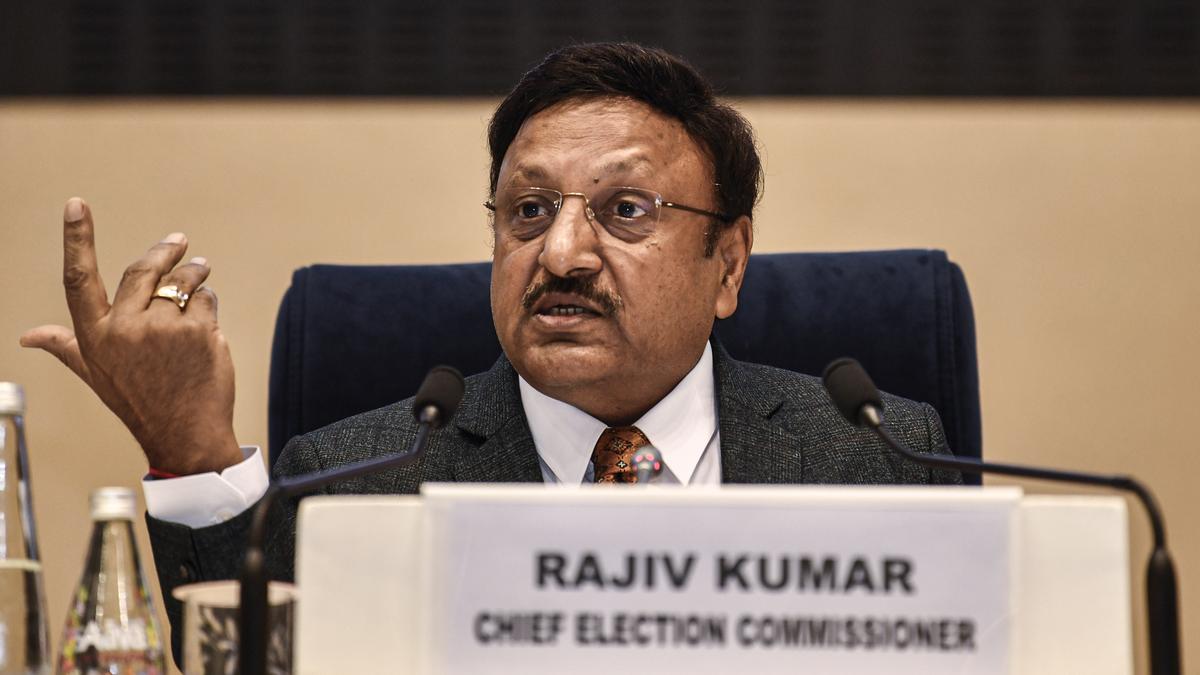Home / uttarakhand / Uttarakhand to Introduce 10 Mandatory Subjects for Class 10 Students in Government Schools Under NEP 2020 Framework
Uttarakhand to Introduce 10 Mandatory Subjects for Class 10 Students in Government Schools Under NEP 2020 Framework
By: My India Times
6 minutes read 45Updated At: 2025-01-14

In a pivotal advancement intended to improve the educational framework in Uttarakhand, the state has resolved to mandate 10 subjects for Class 10 students in government schools, replacing the previous requirement of only five. This initiative is in line with the National Education Policy (NEP) 2020, which advocates for a more comprehensive and multifaceted educational approach. The draft detailing these modifications has been prepared by the State Council of Educational Research and Training (SCERT) and is presently undergoing review prior to submission for final approval by the state government.
This initiative is part of a broader educational reform strategy that the state plans to implement in the forthcoming academic year. By introducing these 10 compulsory subjects, Uttarakhand aspires to provide students with a well-rounded knowledge base that nurtures critical thinking, creativity, and practical skills. The implementation of this updated curriculum is viewed as a direct manifestation of the NEP 2020's suggestions, which prioritize diminishing rote learning and promoting a more adaptive, skill-focused educational experience.
A Progressive Shift for Uttarakhand’s Education System
The most significant alteration for Class 10 students in government schools of Uttarakhand will be the expansion of compulsory subjects from five to ten. This action aligns with the NEP 2020's vision of multidisciplinary education. Educational experts assert that these changes aim to cultivate an education system that is flexible, diverse, and all-encompassing, equipping students not solely for examinations but also for the fast-changing demands of the contemporary world.
At present, students in Uttarakhand are required to study five subjects: their primary language, secondary language, mathematics, science, and social science. However, under the proposed framework, students will now engage with a broader array of subjects across multiple disciplines, affording them a more comprehensive education. While the new system is slated to be implemented next year, the draft for the new curriculum has already been established, detailing how students will engage with these subjects in the 10th grade.
The government's initiative responds to the increasing necessity for an education system that equips students to navigate the complexities of the real world, where interdisciplinary knowledge is essential. The state's endeavor also aligns with the NEP's goal of delivering a curriculum that emphasizes skills, critical thinking, and knowledge extending beyond traditional subjects.
Details of the 10 Compulsory Subjects
The new curriculum draft, which has been crafted by SCERT, recommends that Class 10 students be required to take the following 10 subjects:
Three Languages: Students will need to study three languages. At least two of these will be Indian languages, with the third being either another Indian language or a foreign language, depending on the availability at their schools.
Mathematics: As a core subject, Mathematics will continue to play a vital role in the curriculum, with 135 hours allocated for its study.
Science: Divided into three branches—Physics, Chemistry, and Biology—Science remains a fundamental part of the curriculum, with 135 hours dedicated to its teaching.
Social Science: This includes History, Geography, Political Science, and other related subjects, aiming to provide students with a comprehensive understanding of societal systems, governance, and the world around them.
Art Education: This subject is intended to nurture creativity and artistic expression, helping students develop their artistic talents and skills.
Physical Education and Health: Given the importance of physical fitness and mental health, this subject will encourage students to maintain a healthy lifestyle through physical activities and well-being practices.
Vocational Education: Aimed at preparing students for career-oriented paths, vocational education will provide practical skills that can be applied in various industries.
Computational Thinking: This subject is intended to equip students with digital literacy skills, including basic coding, problem-solving, and understanding technology’s role in modern life.
Life Skills: Focusing on emotional well-being, decision-making, and conflict resolution, this subject aims to develop students’ soft skills, which are essential for personal and professional growth.
Environmental Education: In light of global environmental challenges, this subject will emphasize sustainability, eco-friendly practices, and the importance of protecting the planet.
This broad array of subjects not only ensures that students gain proficiency in traditional academic fields but also that they develop practical and life skills essential for success in today’s fast-paced, technology-driven world.
Teacher Training and Curriculum Implementation
One of the key challenges in implementing this ambitious new curriculum is ensuring that teachers are adequately trained and equipped to teach these subjects. According to department officials, the government is already working to prepare teachers for this transition. Professional development programs are being designed to help educators familiarize themselves with the new curriculum, teaching methods, and the resources required to deliver these subjects effectively.
The government will also ensure that schools are provided with updated textbooks, teaching aids, and other resources to facilitate the smooth implementation of the new curriculum. Teachers will receive training in pedagogical methods that emphasize creativity, inquiry-based learning, and practical skills, aligning with the new educational philosophy promoted by the NEP.
Aligning with the National Education Policy (NEP) 2020
The National Education Policy (NEP) 2020 has been a game-changer for India’s education system, aiming to provide quality education that prepares students for future challenges. The policy promotes a more inclusive, flexible, and student-centric approach to education, emphasizing the importance of multidisciplinary learning. Uttarakhand’s decision to introduce 10 mandatory subjects for Class 10 students is in line with these objectives, aiming to offer a more diversified learning experience.
The NEP also advocates for the reduction of rote learning and encourages critical thinking and problem-solving skills, which are key to preparing students for a rapidly changing world. Uttarakhand’s education system is now moving towards creating a more adaptive and skill-oriented curriculum that focuses on fostering students’ abilities beyond traditional textbook knowledge.
Future Prospects and Conclusion
With the proposed changes in place, Uttarakhand is poised to become a leader in implementing the National Education Policy at the state level. These reforms will provide students with a richer, more dynamic educational experience that is aligned with modern-day needs. As the final draft undergoes approval, stakeholders are optimistic about the positive impact these changes will have on students across the state, preparing them for both academic and real-world success.
By emphasizing a broad-based education that incorporates a mix of academics, life skills, and vocational training, Uttarakhand’s education system is set to be more inclusive, adaptable, and forward-thinking—ensuring that students are not only academically competent but also capable of thriving in an ever-evolving global landscape.
....
In a pivotal advancement intended to improve the educational framework in Uttarakhand, the state has resolved to mandate 10 subjects for Class 10 students in government schools, replacing the previous requirement of only five. This initiative is in line with the National Education Policy (NEP) 2020, which advocates for a more comprehensive and multifaceted educational approach. The draft detailing these modifications has been prepared by the State Council of Educational Research and Training (SCERT) and is presently undergoing review prior to submission for final approval by the state government.
This initiative is part of a broader educational reform strategy that the state plans to implement in the forthcoming academic year. By introducing these 10 compulsory subjects, Uttarakhand aspires to provide students with a well-rounded knowledge base that nurtures critical thinking, creativity, and practical skills. The implementation of this updated curriculum is viewed as a direct manifestation of the NEP 2020's suggestions, which prioritize diminishing rote learning and promoting a more adaptive, skill-focused educational experience.
A Progressive Shift for Uttarakhand’s Education System
The most significant alteration for Class 10 students in government schools of Uttarakhand will be the expansion of compulsory subjects from five to ten. This action aligns with the NEP 2020's vision of multidisciplinary education. Educational experts assert that these changes aim to cultivate an education system that is flexible, diverse, and all-encompassing, equipping students not solely for examinations but also for the fast-changing demands of the contemporary world.
At present, students in Uttarakhand are required to study five subjects: their primary language, secondary language, mathematics, science, and social science. However, under the proposed framework, students will now engage with a broader array of subjects across multiple disciplines, affording them a more comprehensive education. While the new system is slated to be implemented next year, the draft for the new curriculum has already been established, detailing how students will engage with these subjects in the 10th grade.
The government's initiative responds to the increasing necessity for an education system that equips students to navigate the complexities of the real world, where interdisciplinary knowledge is essential. The state's endeavor also aligns with the NEP's goal of delivering a curriculum that emphasizes skills, critical thinking, and knowledge extending beyond traditional subjects.
Details of the 10 Compulsory Subjects
The new curriculum draft, which has been crafted by SCERT, recommends that Class 10 students be required to take the following 10 subjects:
Three Languages: Students will need to study three languages. At least two of these will be Indian languages, with the third being either another Indian language or a foreign language, depending on the availability at their schools.
Mathematics: As a core subject, Mathematics will continue to play a vital role in the curriculum, with 135 hours allocated for its study.
Science: Divided into three branches—Physics, Chemistry, and Biology—Science remains a fundamental part of the curriculum, with 135 hours dedicated to its teaching.
Social Science: This includes History, Geography, Political Science, and other related subjects, aiming to provide students with a comprehensive understanding of societal systems, governance, and the world around them.
Art Education: This subject is intended to nurture creativity and artistic expression, helping students develop their artistic talents and skills.
Physical Education and Health: Given the importance of physical fitness and mental health, this subject will encourage students to maintain a healthy lifestyle through physical activities and well-being practices.
Vocational Education: Aimed at preparing students for career-oriented paths, vocational education will provide practical skills that can be applied in various industries.
Computational Thinking: This subject is intended to equip students with digital literacy skills, including basic coding, problem-solving, and understanding technology’s role in modern life.
Life Skills: Focusing on emotional well-being, decision-making, and conflict resolution, this subject aims to develop students’ soft skills, which are essential for personal and professional growth.
Environmental Education: In light of global environmental challenges, this subject will emphasize sustainability, eco-friendly practices, and the importance of protecting the planet.
This broad array of subjects not only ensures that students gain proficiency in traditional academic fields but also that they develop practical and life skills essential for success in today’s fast-paced, technology-driven world.
Teacher Training and Curriculum Implementation
One of the key challenges in implementing this ambitious new curriculum is ensuring that teachers are adequately trained and equipped to teach these subjects. According to department officials, the government is already working to prepare teachers for this transition. Professional development programs are being designed to help educators familiarize themselves with the new curriculum, teaching methods, and the resources required to deliver these subjects effectively.
The government will also ensure that schools are provided with updated textbooks, teaching aids, and other resources to facilitate the smooth implementation of the new curriculum. Teachers will receive training in pedagogical methods that emphasize creativity, inquiry-based learning, and practical skills, aligning with the new educational philosophy promoted by the NEP.
Aligning with the National Education Policy (NEP) 2020
The National Education Policy (NEP) 2020 has been a game-changer for India’s education system, aiming to provide quality education that prepares students for future challenges. The policy promotes a more inclusive, flexible, and student-centric approach to education, emphasizing the importance of multidisciplinary learning. Uttarakhand’s decision to introduce 10 mandatory subjects for Class 10 students is in line with these objectives, aiming to offer a more diversified learning experience.
The NEP also advocates for the reduction of rote learning and encourages critical thinking and problem-solving skills, which are key to preparing students for a rapidly changing world. Uttarakhand’s education system is now moving towards creating a more adaptive and skill-oriented curriculum that focuses on fostering students’ abilities beyond traditional textbook knowledge.
Future Prospects and Conclusion
With the proposed changes in place, Uttarakhand is poised to become a leader in implementing the National Education Policy at the state level. These reforms will provide students with a richer, more dynamic educational experience that is aligned with modern-day needs. As the final draft undergoes approval, stakeholders are optimistic about the positive impact these changes will have on students across the state, preparing them for both academic and real-world success.
By emphasizing a broad-based education that incorporates a mix of academics, life skills, and vocational training, Uttarakhand’s education system is set to be more inclusive, adaptable, and forward-thinking—ensuring that students are not only academically competent but also capable of thriving in an ever-evolving global landscape.
By: My India Times
Updated At: 2025-01-14
Tags: uttarakhand News | My India Times News | Trending News | Travel News
Join our WhatsApp Channel



















































































































.png)
 (1).png)























